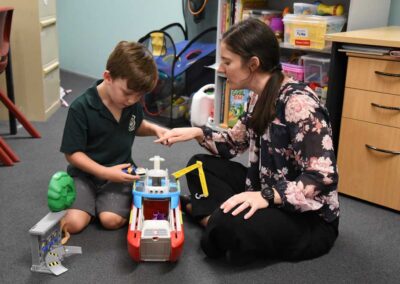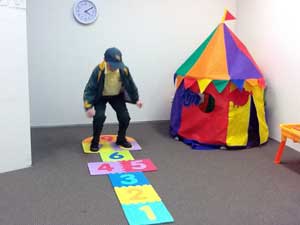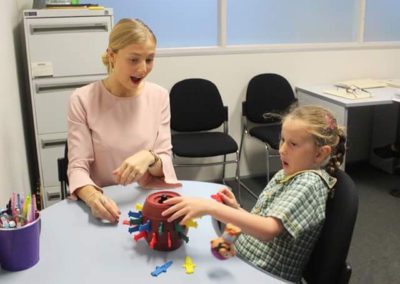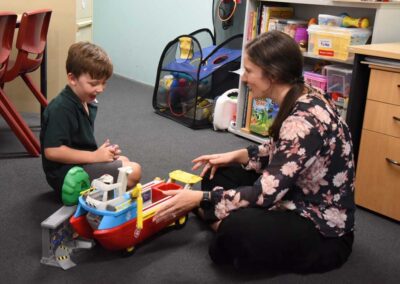Speech pathologists also known as speech therapists (SLPs) are trained professionals who diagnose, treat, and help prevent a wide range of communication and swallowing disorders. These professionals work with individuals of all ages, from infants to older adults. While many associate them with helping people speak more clearly, their work extends far beyond speech, addressing various aspects of communication and swallowing. Here’s an overview of what SLPs can help with:

Speech Disorders:
- SLPs help individuals who struggle with articulation (pronouncing sounds), phonological disorders (issues with sound patterns in speech), voice disorders (such as hoarseness or breathiness), and motor speech disorders like apraxia of speech, where the brain has trouble coordinating the muscle movements needed for speech.
Language Disorders:
- SLPs assist with both expressive language (difficulty forming thoughts and sentences) and receptive language (difficulty understanding spoken or written language). They also treat aphasia (a language disorder from brain damage), childhood language delays, and other challenges in communication comprehension.
Voice Disorders:
- Voice disorders occur when an individual experiences difficulty with vocal quality, pitch, loudness or resonance. Some common voice related issues that SLP’s can treat include hoarseness, vocal cord nodules, laryngitis, voice pitch disorders.
Fluency Disorders:
- SLPs work with individuals who stutter or have cluttering, where speech is disorganized and difficult to understand. They use various techniques to help improve speech fluency.
Swallowing Disorders (Dysphagia):
- SLPs address difficulties with swallowing food or liquids, such as choking, aspiration (food or liquids entering the airway), or painful swallowing. They provide strategies to improve swallowing and reduce risks associated with it.
Feeding:
- SLPs help with feeding by assessing and treating issues related to swallowing, oral motor skills, and coordination during eating. They work with individuals to improve their ability to chew, swallow safely, and manage food textures, ensuring proper nutrition and reducing the risk of choking or aspiration. This may involve exercises, strategies, and recommendations to address specific difficulties.
Cognitive-Communication Disorders:
- For those who have issues with memory, attention, problem-solving, or processing speed due to brain injury, stroke, or neurological conditions like dementia, SLPs help develop strategies to improve cognitive function and communication skills.
Children’s Speech and Language Development:
- SLPs support children who experience delays or difficulties in speech and language development, including challenges related to autism spectrum disorder (ASD), speech delays, and bilingual language development.

Social Communication Skills:
- SLPs help individuals, especially those with neurodivergent conditions, navigate social interactions by teaching conversational skills, recognizing social cues, and using language appropriately in different contexts. As well as understanding neurodiversity and its importance.
Early Intervention for Children:
- One of the most important roles of a speech pathologist is early intervention for children who are struggling with communication. Early signs of speech and language delays can include limited vocabulary, difficulty pronouncing words, trouble following directions, lack of social communication.
Speech pathologists play a vital role in helping individuals improve their communication skills, regain lost abilities, and live more fulfilling lives. Whether it’s addressing a speech disorder, a swallowing issue, or a cognitive communication problem, speech therapists have the expertise to design personalized treatment plans that address each individual’s needs. If you or a loved one is struggling with any of these issues, a speech pathologist can make a profound impact in improving quality of life, confidence, and social interactions.









